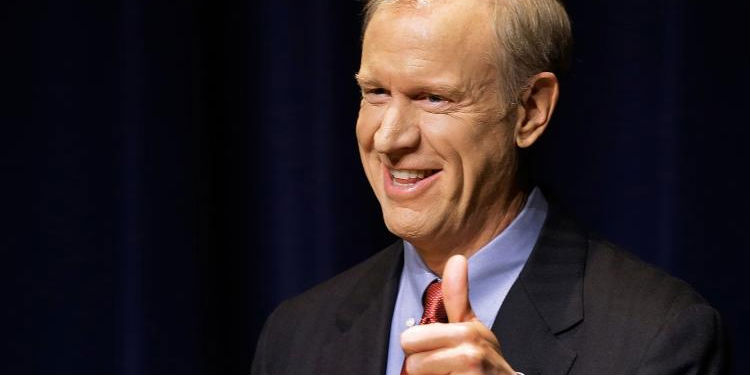Illinois Republican Gubernatorial candidate Bruce Rauner
Videos by Rare
While the media’s November election focus is almost entirely on whether Republicans will control the U.S. Senate, Democrats will likely take their biggest electoral thumping in the states, especially in the gubernatorial races.
Currently, Democrats control 21 governor’s offices and Republicans have 29—one state shy of 60 percent. The GOP will likely control 30 or more after the November elections.
When Democrats controlled 60 seats (which is 60 percent) in the Senate at the beginning of 2010, the mainstream media couldn’t stop talking about it. Sixty percent of the governors’ mansions would be a similarly remarkable feat, which is why the media would mostly ignore the achievement.
Real Clear Politics identifies 12 state governors as safe for Democrats or not up for election, and five as likely or leaning Democratic; 14 governorships are safe Republican or not up for election, with 10 either likely or leaning Republican.
The only governor’s race on that GOP list that might initially seem odd is Illinois, which is currently held by Democrat Pat Quinn.
Quinn is running about 7 points behind GOP challenger Bruce Rauner, according to the RCP average of the polls. While Illinois is considered a blue state, it elected Republican Mark Kirk to the U.S. Senate in 2010, so a Republican statewide victory is possible, even in Obamaland. Maybe, given the state’s high taxes, fiscal mismanagement and lack of political accountability—or what’s known as the Obama plan for economic growth—voters are eager to try something that works for a change.
RCP puts nine states in the toss-up category, six held by Republican governors and three by Democrats. Two very blue states, Connecticut and Hawaii, are among the toss-ups, which may tell us something about the direction this election is heading. In both cases, the Republican candidate is leading.
Three of the blue-leaning, toss-up states flipped to GOP governors in 2010—Michigan (Rick Snyder), Maine (Paul LePage) and Wisconsin (Scott Walker). That switch was part of a national pushback against Obama, and especially Obamacare. That 2010 resentment has only grown among Republicans and has spread to independents and even some Democrats.
And as in 2010, Obama is not on the ballot, at least not personally; he will be indirectly on the ballot in voting booths across the country—much to the chagrin of many Democratic candidates. With the anti-Obama side far more energized in this election, it is easy to see 31 Republican governors in its wake—above 60 percent.
In addition, Republicans currently control 60 percent of state legislative chambers—59 of the 98 (which excludes Nebraska, which considers its unicameral chamber nonpartisan). And it appears the GOP could extend that control by six or seven come November.
The irony in the 2014 election is that all the discussion about control seems to be focused on Washington, even as states are increasingly reasserting their independence from federal control. That’s a much-needed change.
In a federalist system—where powers not specifically granted to the federal government by the Constitution are reserved to the states, or individuals—the states are as important, if not more important, than the feds.
If more Republican governors are in control, look for more states to assert their role as the creator of the federal government, not the servant of it. Indeed, Politico reports that even Democratic mayors and governors are “going rogue,” with several defying the federal government on numerous policy issues.
And look for more states to consider cutting taxes and government spending, and scaling back regulations.
Putting conservatives and libertarians in the governors’ offices won’t solve all our problems, but it will help make clear where the real problem lies—in both senses of the word.



